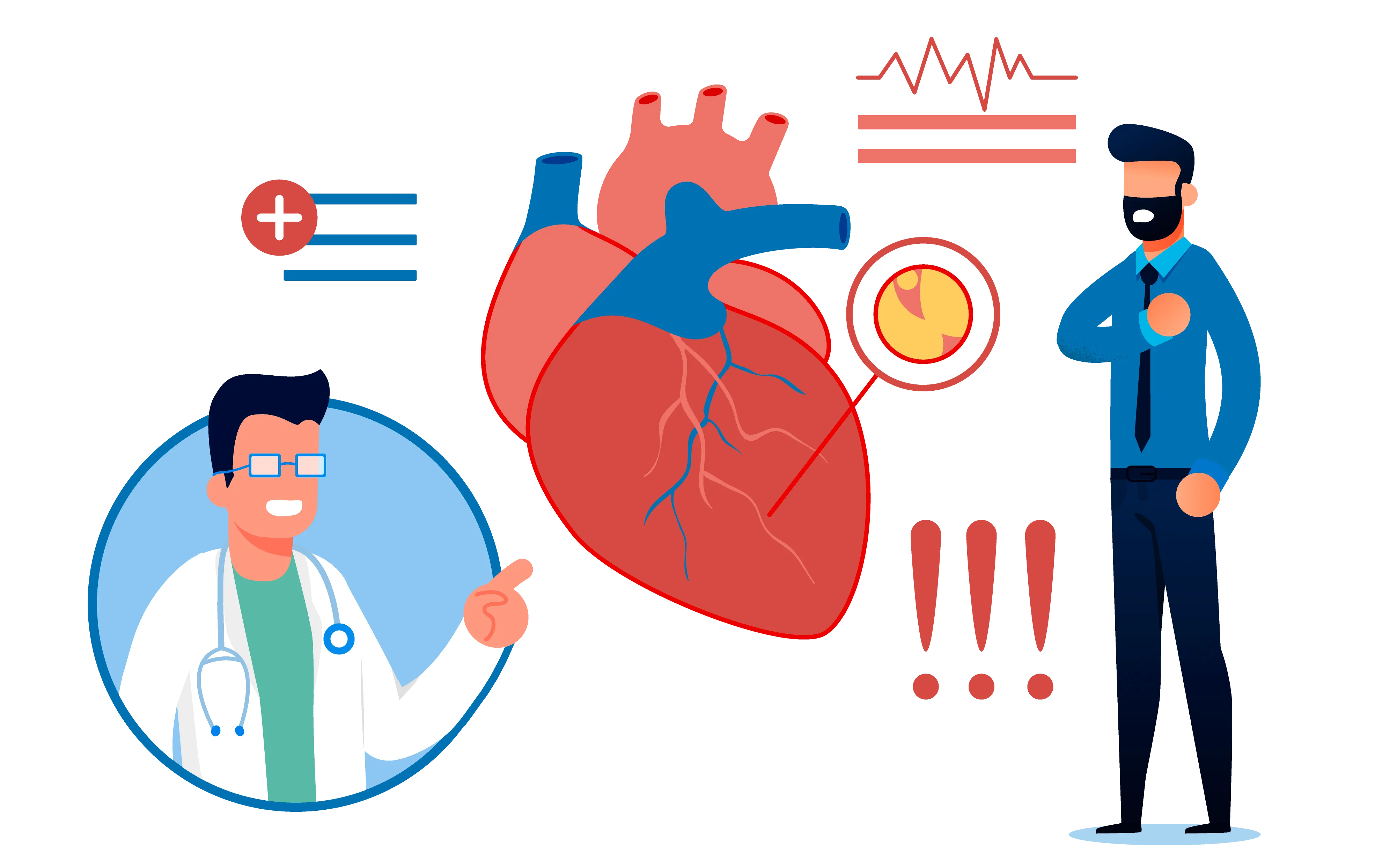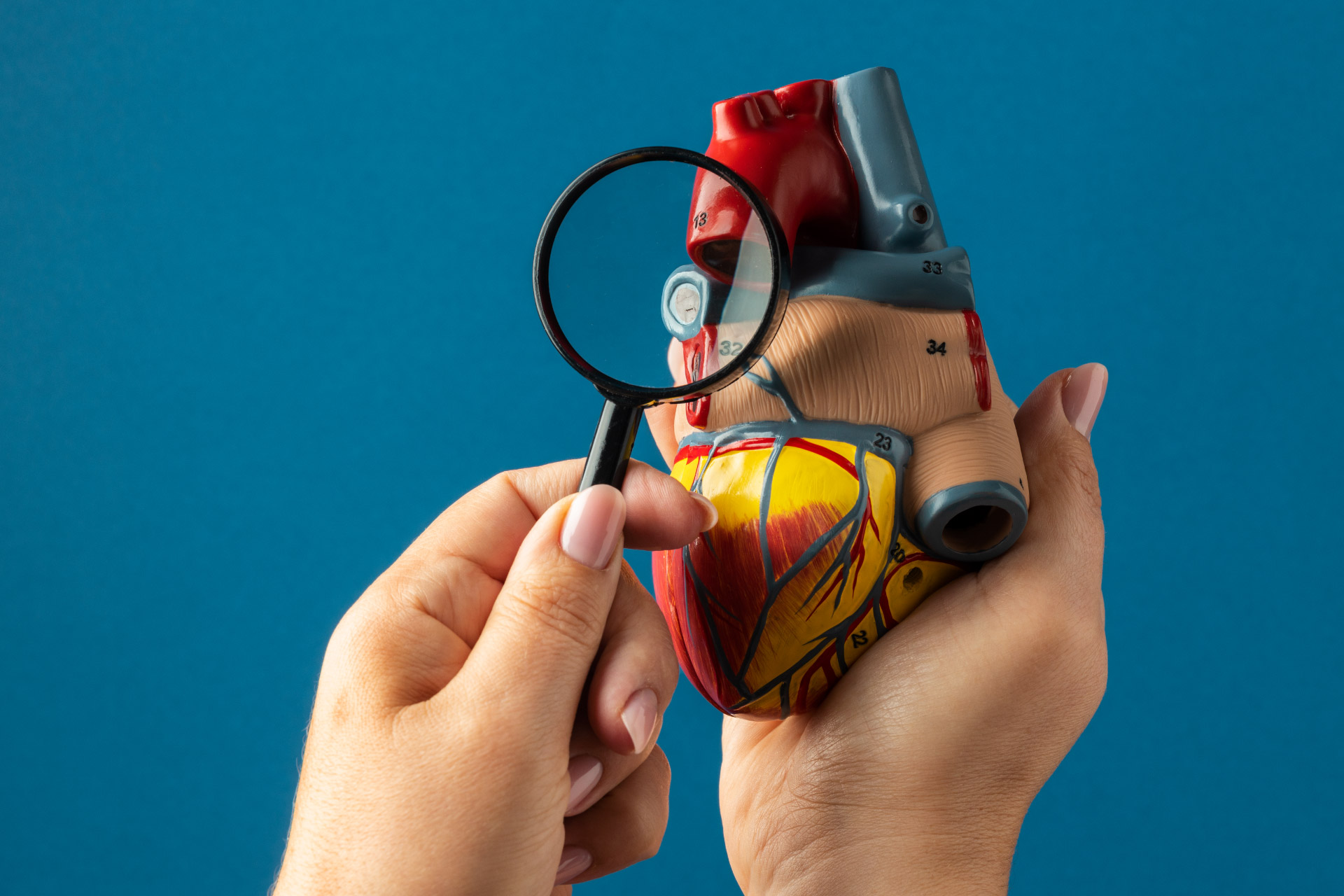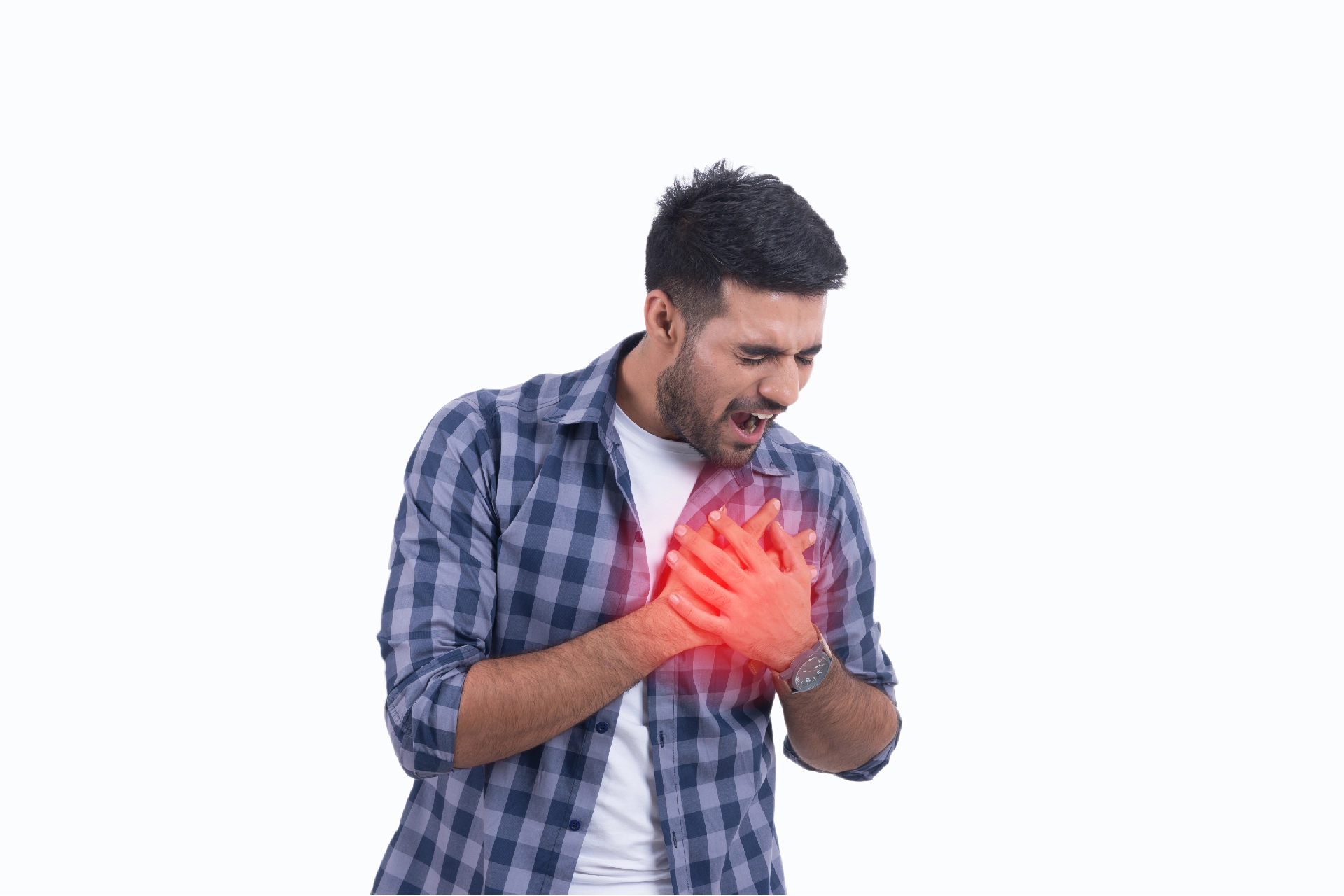Heart Health | 4 min read
5 Types of Heart Disease and Their Symptoms You Need to Keep an Eye on!
Medically reviewed by
Table of Content
Key Takeaways
- The type of heart disease depends on the cardiovascular problem you face
- Heart diseases can also become causes of a heart attack or heart failure
- Active lifestyle and a healthy diet can reduce the risk of complications
Cardiovascular disease (CVD) or heart disease is a leading cause of deaths around the world and in India. Approximately 17.9 million lives are lost to different types of heart disease and 4 out 5 CVD deaths have occurred due to a heart attack. One-third of these deaths are premature, common in people under the age of 70 [1]. One of the leading causes of heart diseases among people are the risk factors associated with lifestyle. Here are a few common causes of a heart attack and other heart diseases:
Physical inactivity
Unhealthy diet
Smoking
Excess intake of alcohol
Due to the busy lifestyle and rising cardiovascular health concerns in today’s world, it becomes important for you to stay alert and know about every types of heart disease. To have a thorough understanding of heart attack symptoms, their prevention and treatment, read on.
Types of heart disease
Heart disease describes the various conditions affecting your cardiovascular health. Some of the common types of heart disease are as follows:
Coronary artery disease (CAD)
This is one of the most common types of heart ailments [2]. It occurs when plaque buildup blocks your arteries, which makes them harden and narrower. This results in reduced blood supply to and from the heart. Some of the common symptoms of CAD include:
Pain in the chest
Discomfort in shoulders and arms
Breathing problems
Weakness and nausea
CAD treatments include making lifestyle changes, taking medications, and undergoing surgical procedures.

Arrhythmia
Arrhythmia is a condition where you experience an abnormal heart rhythm. There are two types of arrhythmia – heartbeats that are too fast and heartbeats that are too slow. The symptoms of arrhythmia may be silent, and your doctor may notice it during a physical exam. The treatment for arrhythmia depends on the type you have. Its treatments include:
Medication
Vagal maneuvers
Pacemaker
Catheter ablation
Heart surgery
Cardiomyopathy
This is a type of progressive heart disease where the heart is abnormally enlarged, stiffened, or thickened. It causes a decrease in the heart’s efficiency to pump blood. It can also lead to heart failure. The three main types of cardiomyopathy are:
Dilated cardiomyopathy
Hypertrophic cardiomyopathy
Restrictive cardiomyopathy
Symptoms observed in this condition include:
Fatigue
Swelling in ankles and legs
Bloated abdomen
Inability to breathe even when there is no physical activity
The treatment for it depends on the type you have. It includes medication, pacemaker, surgery, and transplant in severe cases.

Heart valve disease
The function of heart valves is to pump and aid the flow of blood to the lungs, heart, and body. When the valves do not function properly, it results in this condition. It can develop before birth or during your lifetime. There are different types of heart valve diseases:
Valvular stenosis
Valvular insufficiency
You may experience severe chest pain and rapid palpitations if you have this condition. Its treatment includes medication, traditional heart valve surgery, and decalcification.
Additional read: Heart Valve Disease: What are the Key Causes and Important Prevention Tips?
Heart failure
Heart failure is when the heart is not working the way it should. It occurs when there is a problem with the pumping or relaxing function of the heart. It can occur when CAD is untreated or due to high blood pressure, arrhythmias and other conditions. This is a life-threatening condition you can prevented if you get treatment at an early stage. This includes medication or surgery.
Preventing heart diseases
Heart defects cannot be prevented but there are some measures you can take to prevent other types of heart disease. These measures include:
Making lifestyle changes
Quitting habits that are harmful is the first step towards better and improved health. For example, smoking and heart disease are connected and when you stop smoking, your health can improve.
Having a healthy diet
Consuming a balanced and nutritious diet can help you get back in shape.
Reducing stress
Stress is one of the major risk factors that can affect your heart health. Learning to manage it will keep these conditions at bay.
Being active
Walking, exercise, or yoga can improve and boost your cardiovascular health.
Additional read: Smoking and Heart Disease: How Does Smoking Risk Your Heart?
While some of these heart diseases are genetic, others are related to lifestyle. No matter which type of heart disease it is, track the symptoms and your health carefully. Remember, your heart problems can be linked to other health issues such as hypertension or diabetes.
Regular check-ups and maintaining a healthy lifestyle are some of the best ways to keep your heart and overall health in check.
Do not delay contacting a general doctor or cardiologist if you encounter any heart disease symptoms. Book an online doctor appointment on Bajaj Finserv Health in minutes and consult with a top heart specialist. With the right medical advice and tips, you can keep your heart in the best shape.
References
- https://www.who.int/health-topics/cardiovascular-diseases#tab=tab_1
- https://medlineplus.gov/coronaryarterydisease.html
Disclaimer
Please note that this article is solely meant for informational purposes and Bajaj Finserv Health Limited (“BFHL”) does not shoulder any responsibility of the views/advice/information expressed/given by the writer/reviewer/originator. This article should not be considered as a substitute for any medical advice, diagnosis or treatment. Always consult with your trusted physician/qualified healthcare professional to evaluate your medical condition. The above article has been reviewed by a qualified doctor and BFHL is not responsible for any damages for any information or services provided by any third party.





